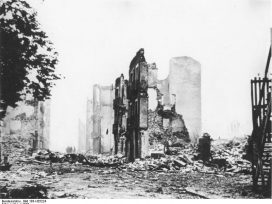is Professor of Contemporary History at the University of Zaragoza. Among his recent publications: A Short History of the Spanish Civil War (I.B. Tauris, 2012). Further publications include La historia social y los historiadores (Crítica, Barcelona, 1991); De la calle al frente. El anarcosindicalismo en España, 1931-1939 (Crítica, Barcelona, 1997, English edition Anarchism, the Republic and Civil War in Spain: 1931-1939, Routledge, London and New York, 2005); República y guerra civil (Crítica, Barcelona, 2007; English edition, The Spanish Republic and Civil War, Cambridge University Press, Cambridge, 2010); with Carlos Gil, Historia de España en el siglo XX (Ariel, Barcelona, 2009; published as Twentieth Century Spain: A History, Cambridge University Press, 2014); and Europa contra Europa, 1914-1945 (Crítica, Barcelona, 2011).

